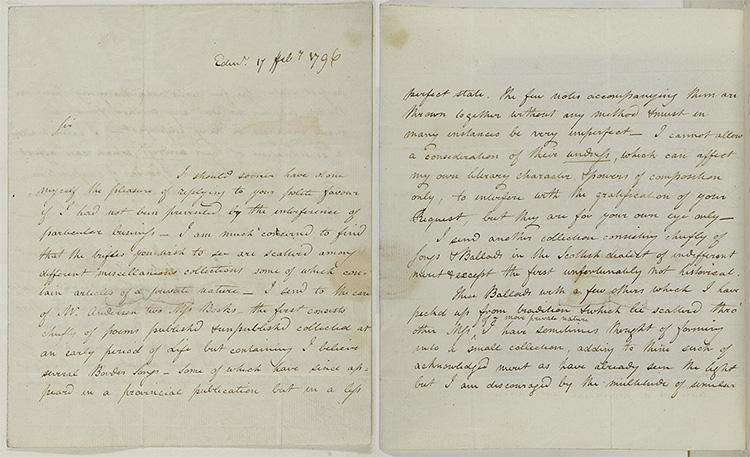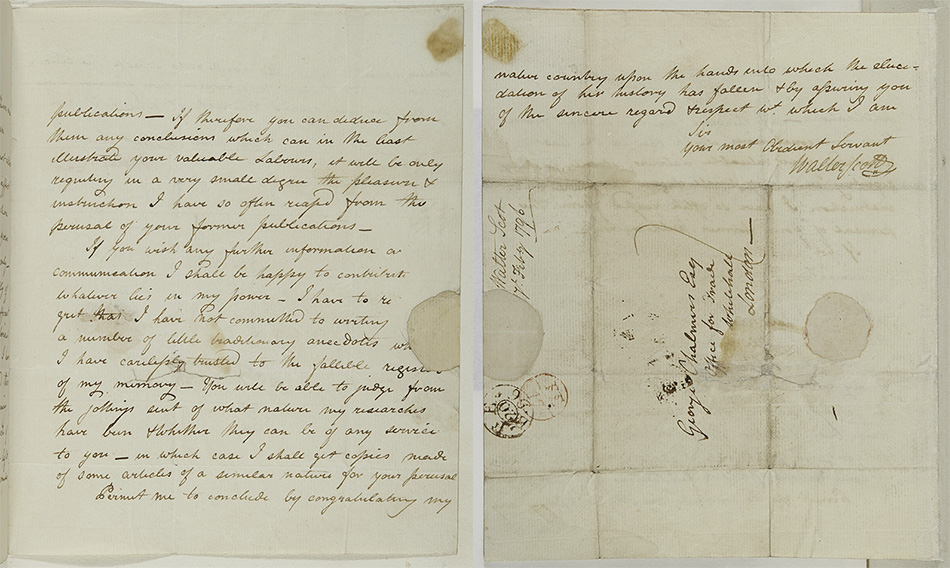Sir Walter Scott (1771-1832) and the ‘Minstrelsy of the Scottish Border’
The Marseille Middleton Holloway autograph albums, gifted to the University Library a few years ago, contain a fascinating collection of historical documents associated with some key figures in British and French political and literary history from the 16th to the 20th centuries. Highlights include correspondence from Elizabeth I, Beethoven, Robert Burns, Sir Walter Raleigh, Admiral Lord Nelson, Coleridge and Sir Walter Scott.
The collection was built up by Marseille Middleton Holloway (1809-1897), a well-known London dealer in prints, engravings and autographs, with a shop in Bedford Street.

Sir Walter Scott (1771-1832) is one of Scotland’s most famous writers, author of Waverley, Ivanhoe, Rob Roy and many other historical novels. Included in the albums is a letter from Sir Walter Scott to George Chalmers. This letter, written early in his career when aged only 25, shows the idea to publish a collection of traditional Scottish ballads was already in his mind. Scott is answering a request from George Chalmers, a respected Scottish antiquary, to see some of the ballads and folk songs he had amassed during various ballad-collecting excursions in the southern regions of Scotland. A selection was published by Scott as Minstrelsy of the Scottish Border in 1802.
Scott was going to send him two manuscript books, but was worried about his work being seen in draft form and asked Chalmers not to show them to anyone else.
‘I have to regret that I have not committed to writing a number of little traditionary anecdotes which I have carelessly trusted to the fallible register of my memory’.


Chalmers was at work on an lengthy antiquarian history of Scotland, eventually published under the title Caledonia (1807-1824), and Scott hoped that his ‘jottings’ and ‘researches’ might help Chalmers in his ‘valuable labours’. Scott shows himself keen to collaborate and share material on Scottish culture and history although he confesses that his notes are ‘thrown together without any method & must in many circumstances be very imperfect’.
In the coming weeks, we hope to share more highlights like this one from the Marseille Middleton Holloway autograph albums.